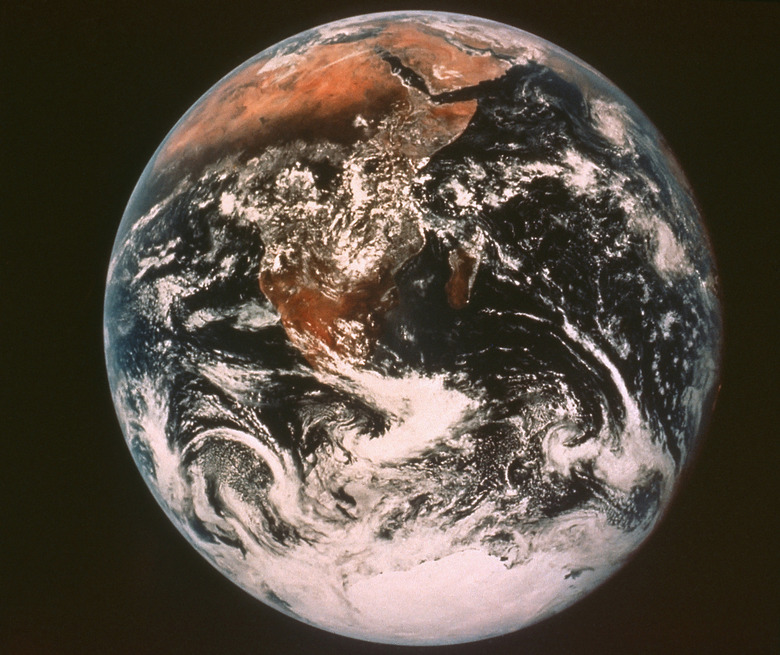Key Concepts In Basic Science
The most important and basic scientific concepts help you with your pursuit of knowledge. The National Science Foundation shares that having an understanding of these concepts helps you have a better understanding of science-related material that you hear, read or discuss, as well as the elements of scientific inquiry. By knowing core scientific concepts, you can develop a better and more accurate perception of how the world works.
Scientific Process
Scientific Process
Scientists learn and gain knowledge with observations and experiments. The scientific process begins with posing a question, developing a hypothesis and making educated predictions. Experiments, data evaluation, making adjustments and confirming results follow. Scientific results must be observable, measurable and repeatable. Common elements of the scientific process include identifying, measuring and reporting cause and effect. The scientific process is important because it eliminates personal biases and can change what others decide to believe, according to the Science Integration Institute website.
Organization and Systems
Organization and Systems
Organizing objects and phenomena into a logical order helps individuals understand a subject's complexity or place in a list of hierarchies. For example, plants and animals are organized by kingdom, phylum, class, order, family, genus and species. Scientists also organize various components into systems. A solar system, for instance, contains a sun, planets, moons, dwarf planets and comets.
Variation, Change and Diversity
Variation, Change and Diversity
Variation observed in elements helps individuals understand the distinctive properties found in objects. By understanding these differences or how elements change, individuals can better predict the outcome of modifications. The Department of Education offers the example of exposing water to heat or freezing temperatures, which can cause it to freeze and expand, evaporate or boil. Understanding diversity in the natural world gives better insight into how ecosystems work and depend on different elements to carry out their intended functions. For example, water in an ecosystem provides a natural habitat for aquatic animals, acts as a source of hydration for others and provides nutrients to plants. Warm water in springs can serve as a warm refuge for animals that live in cold places, like the Japanese macaques. In its frozen form, water is a habitat for animals like polar bears or those that use the snow as camouflage from predators, like willow ptarmigans.
Scale
Scale
The use of scale quantifies measurable items. Each type of scale has its own respective units of measurement. Thermometers, for example, measure temperatures using the Fahrenheit, Celsius or Kelvin scales. Rulers indicate the size of an object using the metric scale or U.S. customary units, like inches. Scientists use relative scale to help others understand a concept related to size and maintain the proportions in question. An example of relative scale is an astronomer using a large beach ball to represent the sun and several balls of various sizes for planets. By placing the smaller balls around the beach ball, the scientist demonstrates the size of the planets in relation to the sun and indicates their positions in the solar system.
References
Cite This Article
MLA
Richards-Gustafson, Flora. "Key Concepts In Basic Science" sciencing.com, https://www.sciencing.com/key-concepts-basic-science-15676/. 24 April 2017.
APA
Richards-Gustafson, Flora. (2017, April 24). Key Concepts In Basic Science. sciencing.com. Retrieved from https://www.sciencing.com/key-concepts-basic-science-15676/
Chicago
Richards-Gustafson, Flora. Key Concepts In Basic Science last modified August 30, 2022. https://www.sciencing.com/key-concepts-basic-science-15676/
